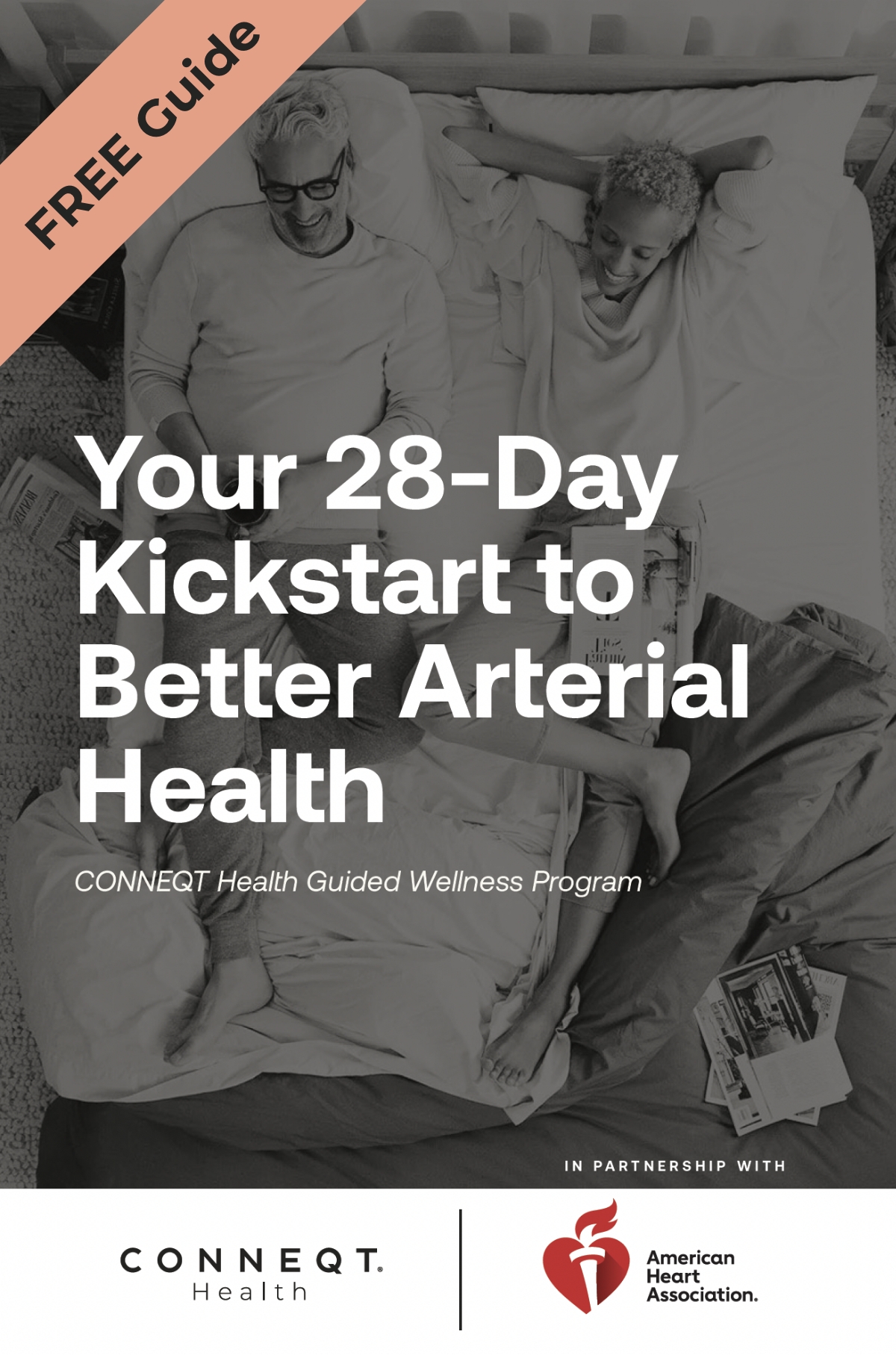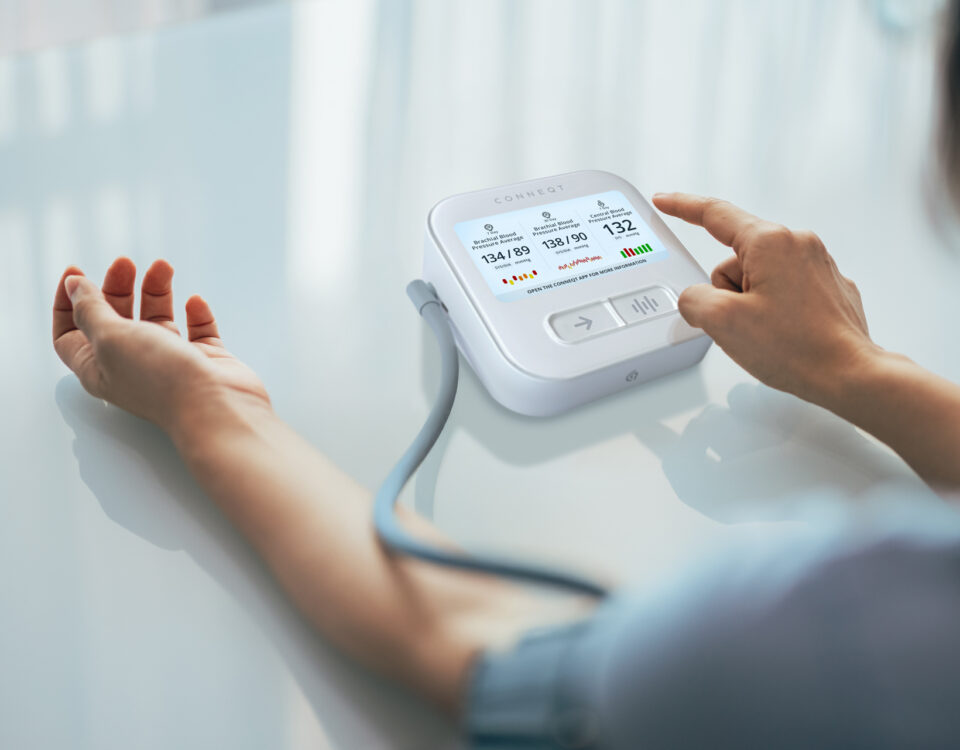Early Vascular Aging is a specific condition that accelerates the aging process of blood vessels. This premature aging can lead to significant cardiovascular problems, as the stiffening of arteries places additional strain on the heart.
The Role of Arterial Flexibility in Early Vascular Aging
When we are healthy, our arteries are flexible and able to expand and contract with each heartbeat, ensuring smooth blood flow and maintaining optimal blood pressure. This elasticity is crucial for the cardiovascular system’s proper function. Early Vascular Aging (EVA) refers to the premature stiffening of arteries, a condition where arterial walls lose their elasticity much earlier than expected for a person’s age.
When EVA occurs, this flexibility diminishes, making arteries stiffer and less compliant, which can have serious health implications. Understanding and addressing EVA is essential for maintaining cardiovascular health and overall well-being as we age. Stiff arteries result in higher blood pressure and an increased workload on the heart, which significantly raises the risk of hypertension, heart attack, and stroke. This increased pressure and reduced arterial flexibility impede the efficient delivery of oxygen and nutrients to various organs and tissues, potentially leading to a range of health issues.
The Silent Threat to Heart, Brain, and Kidneys
The implications of EVA are extensive, impacting not only the cardiovascular system but also overall health. Emerging research highlights a connection between vascular health and cognitive function. EVA may contribute to the development of cognitive impairments, including dementia. The kidneys, too, rely on steady blood flow for optimal function. When arterial stiffness compromises this flow, it can lead to chronic kidney disease. Thus, the impact of EVA extends beyond just the cardiovascular system, influencing multiple aspects of health.
Early detection of EVA is crucial for effective intervention. Various methods can assess arterial health, providing insight into the degree of vascular aging. Central Blood Pressure (CBP) measurement is particularly valuable, as it evaluates the pressure in the aorta, offering a more accurate reflection of arterial health compared to traditional blood pressure measurements. Similarly, the Augmentation Index (AIx) provides additional insights into arterial stiffness by quantifying the contribution of arterial stiffening to the overall pressure exerted by the heart. These assessments facilitate early identification of EVA, enabling timely interventions to prevent further progression and mitigate associated health risks.
Impact of Lifestyle, Genetics, Chronic Diseases, and More
Several factors contribute to the development of EVA. Genetics play a significant role, as a family history of cardiovascular diseases can increase the likelihood of early arterial stiffening. Lifestyle choices are also critical; poor diet, physical inactivity, smoking, and excessive alcohol consumption are major contributors to EVA. These habits accelerate arterial aging, leading to premature stiffness and associated health risks.
Chronic conditions like diabetes, hypertension, and obesity are closely linked to EVA. These conditions exacerbate arterial stiffness through various mechanisms, including inflammation and oxidative stress. Chronic inflammation and oxidative stress damage the arterial walls, further contributing to their premature aging. Understanding these factors is essential for developing effective prevention and management strategies.
Another significant factor in the development of EVA is preeclampsia, a condition characterized by high blood pressure during pregnancy. Women who experience preeclampsia are at an increased risk of developing arterial stiffness later in life. The condition can cause long-term damage to the vascular system, leading to EVA. This connection underscores the importance of monitoring cardiovascular health in women with a history of preeclampsia and implementing early interventions to mitigate the risk of EVA and its associated complications.
Preventing and Managing Early Vascular Aging
Early Vascular Aging represents a significant yet often overlooked aspect of cardiovascular health. By understanding its causes, consequences, and prevention strategies, individuals can take proactive steps to maintain healthy arteries and reduce the risk of cardiovascular diseases.
Embracing a healthy lifestyle, managing chronic conditions, and staying informed about vascular health are crucial in the fight against EVA. Foods rich in antioxidants, such as berries and leafy greens, combat oxidative stress and support vascular health. Regular physical activity is equally important, as it enhances arterial flexibility and reduces the risk of cardiovascular diseases. Avoiding smoking and moderating alcohol consumption are critical too, as both habits significantly accelerate arterial aging.
Additionally, stress management techniques like mindfulness, meditation, and yoga can help mitigate the adverse effects of chronic stress on vascular health. Regular health screenings and monitoring of arterial health are essential for early detection and timely intervention. Lastly, incorporating advanced monitoring tools like the CONNEQT Pulse for comprehensive at-home arterial health screening can make a significant difference. These devices enable early detection and timely intervention, allowing individuals to manage their vascular health proactively and reduce the risk of complications associated with early vascular aging. By staying vigilant and utilizing available resources, we can better protect our heart and enhance our longevity.









